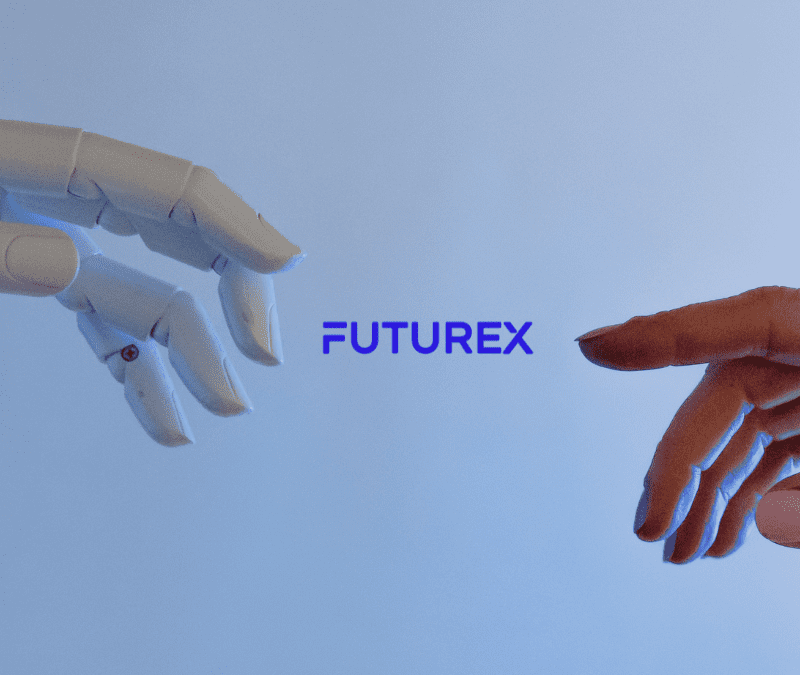Artificial intelligence (AI) has become a potent ally in the dynamic field of digital marketing. Moreover it is transforming marketing tactics with its unparalleled insights, efficiency, and client interaction, ranging from personalization to predictive analytics. We’ll examine the ways that businesses are using this cutting-edge technology to stay ahead in the fast-paced world of digital commerce as we delve into the revolutionary effects of AI on marketing.
Understanding AI in Marketing:
Artificial intelligence is a real force that is influencing marketing in the future, not just a far-off idea found only in science fiction. The creation of computer systems that are capable of activities that normally require human intelligence is the essence of artificial intelligence. This translates into a plethora of applications in marketing that are intended to improve decision-making, automate procedures, and provide customers with more customized experiences.
Personalization Redefined:
- Dynamic Content Recommendations: Massive volumes of data, such as user activity and preferences, are analyzed by AI algorithms to provide highly customized content recommendations. This degree of personalization improves the user experience and encourages interaction, from making product recommendations to selecting content. Question for Reflection: How often do you notice personalized content recommendations in your online interactions, and do they influence your decision-making process? Share your thoughts!
- Tailored Customer Journeys: With the help of AI, marketers can design dynamic customer journeys that change in real time in response to unique interactions. Every touchpoint, from the first interaction to the correspondence following a purchase, is tailored to the specific requirements and preferences of the client. Imagine a personalized customer journey from start to finish. What elements would you consider crucial for a seamless and personalized experience?
Predictive Analytics:
- Anticipating Customer Behavior: Marketers can predict customer behavior by using predictive analytics, which makes use of machine learning algorithms. Artificial Intelligence (AI) can detect patterns and trends in past data, enabling companies to anticipate client wants and remain ahead of industry changes. How do you feel about businesses using predictive analytics to anticipate your needs? Does it enhance or concern you?
- Optimizing Marketing Campaigns: Predictive analytics powered by AI finds the best channels, times, and content to maximize marketing initiatives. This guarantees the effective use of resources while also optimizing the impact of marketing initiatives. Food for thought: If you were to optimize a marketing campaign using predictive analytics, what elements would you prioritize?
Chatbots and Virtual Assistants:
- Enhancing Customer Support: AI-powered chatbots and virtual assistants provide instant and personalized customer support. From answering queries to guiding users through the purchase process, these intelligent agents enhance the overall customer service experience. Have you interacted with AI-powered chatbots in customer support? What was your experience, and how effective do you find them?
- 24/7 Accessibility: Unlike traditional customer support, AI-powered chatbots are available 24/7, ensuring that customers can access assistance at their convenience. This round-the-clock availability contributes to increased customer satisfaction and loyalty. Question for Reflection: How important is 24/7 accessibility in customer support, and do you prefer AI-powered solutions for quick responses?
Data-Driven Decision Making:
- Analyzing Big Data: AI processes vast amounts of data at speeds unattainable by human analysis. This capability enables marketers to derive actionable insights from big data, informing strategic decisions and uncovering hidden opportunities.
- Precision in Targeting: AI refines audience targeting by analyzing demographic data, online behaviors, and preferences. This precision ensures that marketing efforts are directed towards individuals who are more likely to be interested in a product or service. Question for Consideration: How do you feel about businesses using AI to target ads specifically tailored to your interests? Does it enhance or detract from your online experience? Share your perspective!
Ethical Considerations:
- Data Privacy Concerns: The increased reliance on AI in marketing raises valid concerns about data privacy. Striking a balance between personalization and protecting consumer data is crucial for maintaining trust. Interactive Challenge: If you were to propose one ethical guideline for businesses using AI in marketing, what would it be?
- Transparency in AI Algorithms: Transparent communication about the use of AI algorithms fosters trust with consumers. Marketers need to be open about how AI is employed in crafting personalized experiences and respecting user privacy. Question for Reflection: How important is transparency in AI-driven marketing for you as a consumer? Does it influence your trust in a brand?
Looking Ahead: The Future of AI in Marketing:
The potential for marketing are intriguing as AI develops further. Businesses that embrace artificial intelligence (AI) are well-positioned to remain at the forefront of innovation, from advances in natural language processing to even more advanced predictive analytics. Moreover, it is a rapidly evolving field, and its applications in marketing are continually expanding. As technology advances, marketers need to stay informed about the latest developments and trends in AI. Being adaptable and open to incorporating new AI tools and strategies is essential for staying competitive in the dynamic digital landscape.
In Conclusion:
AI is not just a tool; it’s a transformative force that is reshaping the entire marketing ecosystem. Embracing AI allows businesses to unlock new levels of efficiency, personalization, and strategic insight. However, it’s essential to approach AI in marketing with a commitment to ethical practices, transparency, and a continued willingness to adapt to the evolving technological landscape.
The integration of artificial intelligence into marketing is not a trend; it’s a paradigm shift. The intelligent marketer harnesses the power of AI to create more personalized, efficient, and impactful strategies. As businesses and consumers alike navigate this AI-driven landscape, the key lies in striking a balance—leveraging the potential of AI while upholding ethical considerations and maintaining the human touch in marketing interactions. The journey towards a smarter, more connected future has only just begun, and the possibilities are limitless.

